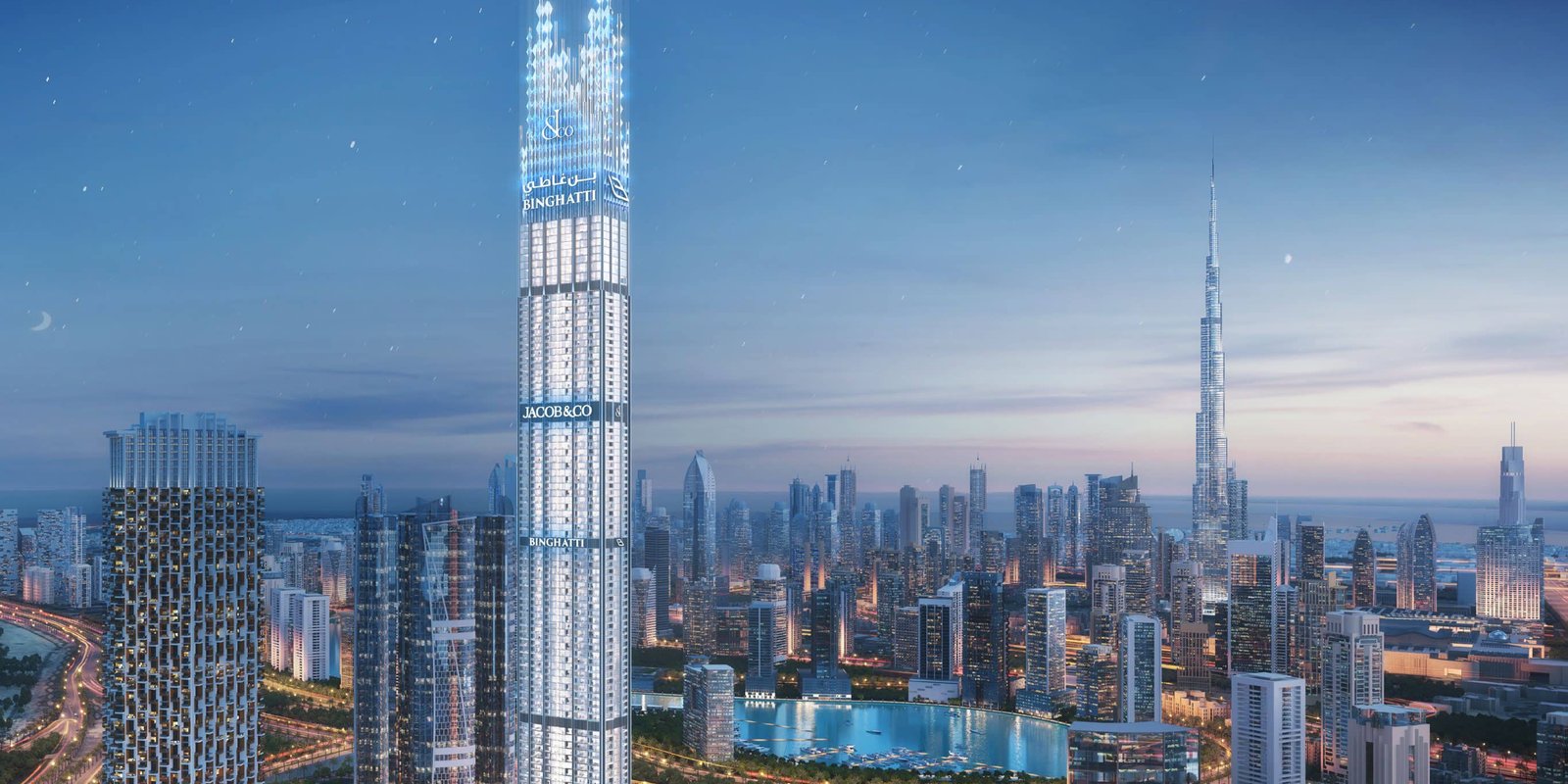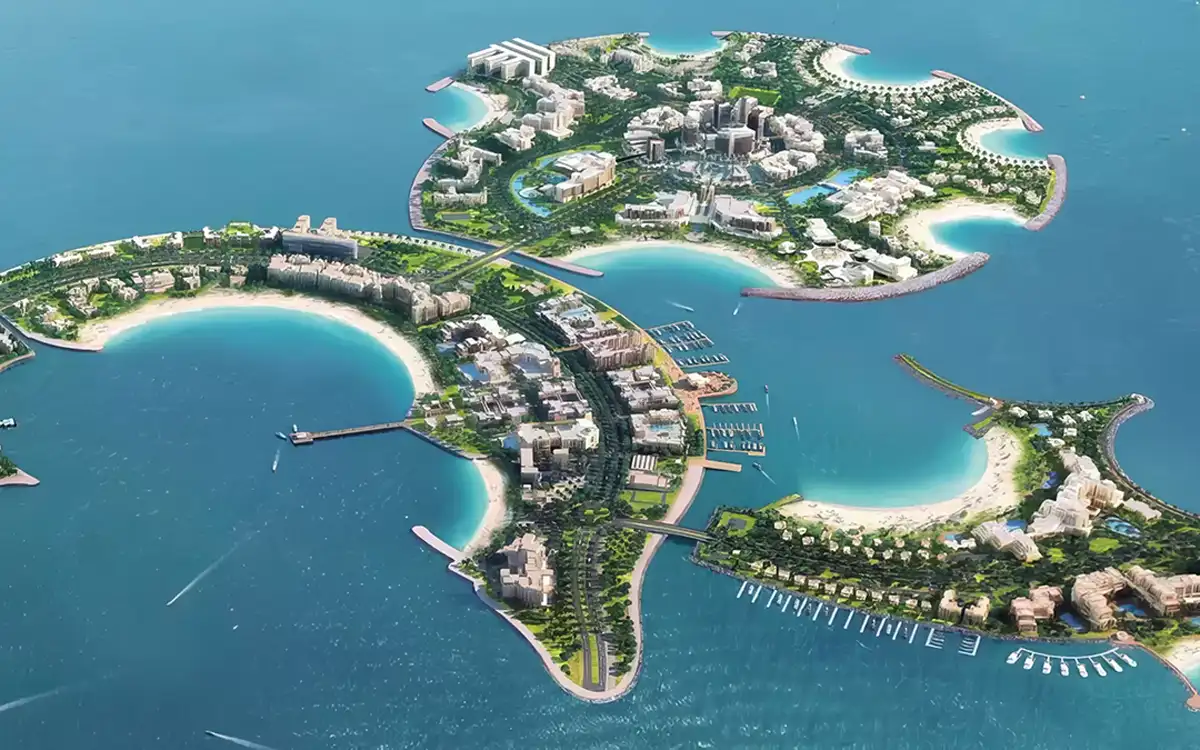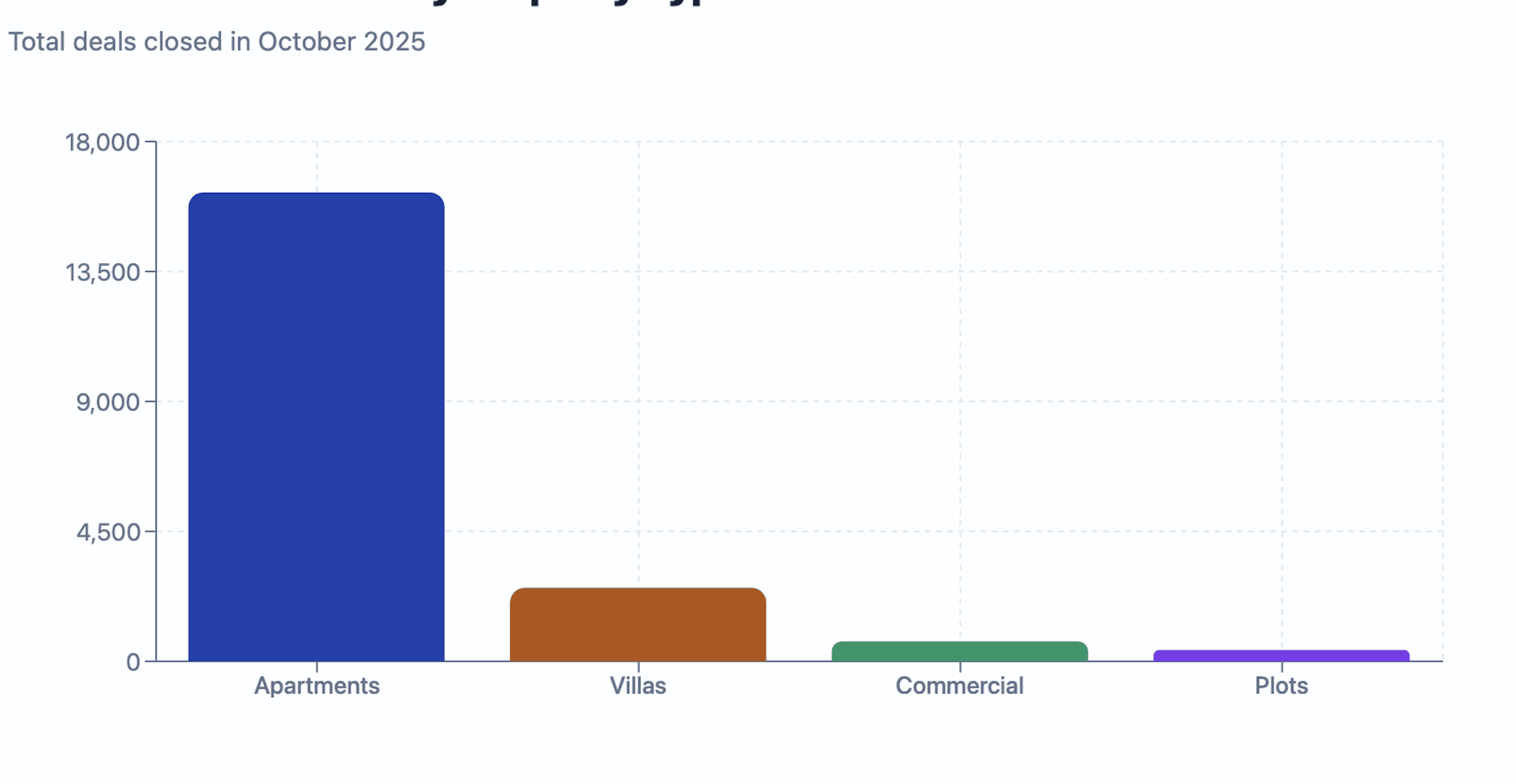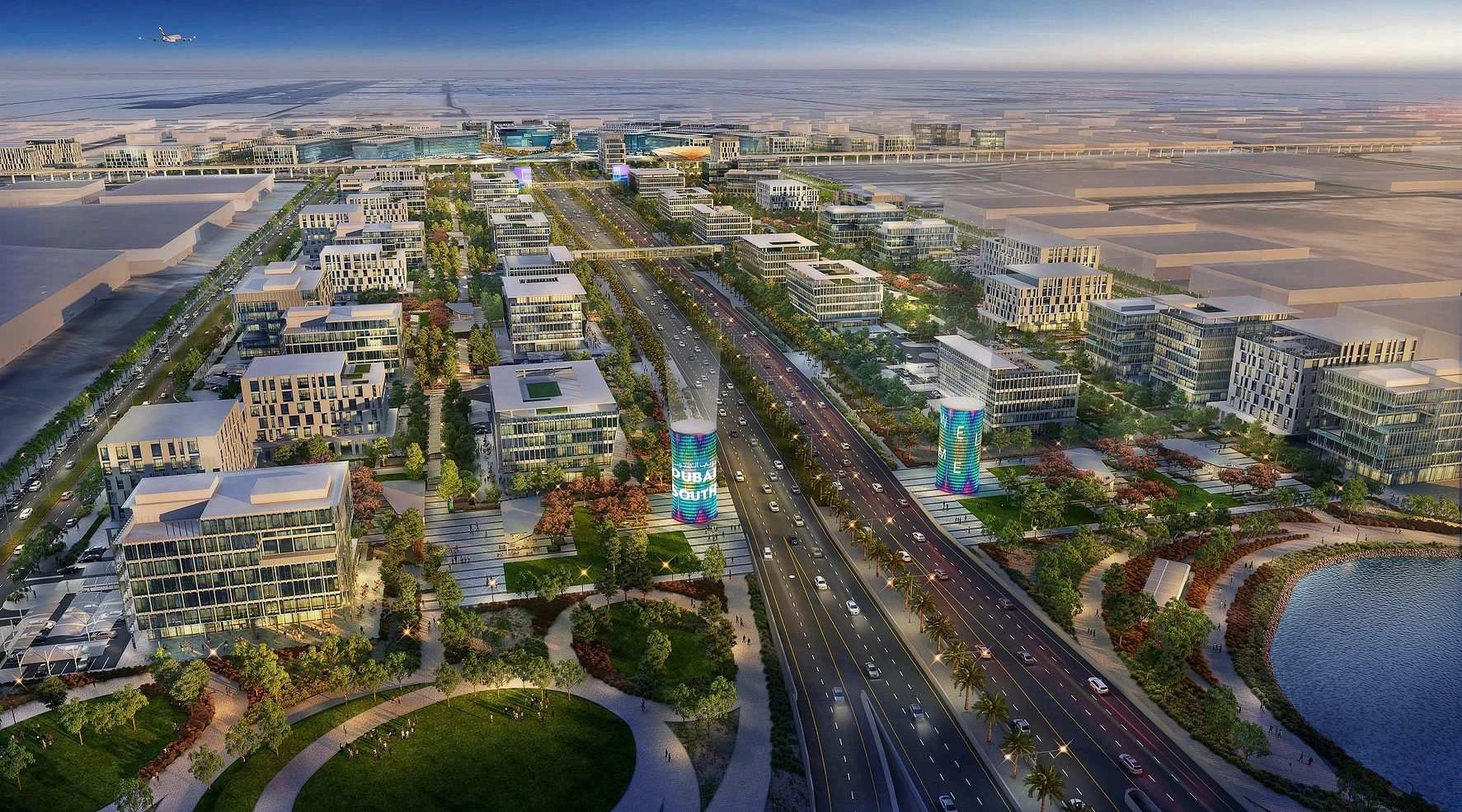The Investor's Guide to Dubai's Property Market in 2024
Dubai's real estate market is constantly changing and presents profitable opportunities for local and international investors. It's important to stay updated on the latest market trends, government initiatives, and investment strategies as we enter 2024. This article offers a thorough analysis of the Dubai property market, covering current price trends, growing sectors, and a forecast for investors in the upcoming year.
Market Trends and Forecasts
1. Analysis of Property Price Trends and Expected Changes
The Dubai real estate market has been through ups and downs in the past decade, influenced by global economic conditions, regional developments, and local market dynamics. In 2023, property prices in Dubai have been steadily increasing, mainly driven by rising demand in luxury and prime segments.
After a tough period during the COVID-19 pandemic, the market showed strong recovery in 2022 and 2023. Prices in key areas like Downtown Dubai, Dubai Marina, and Palm Jumeirah have returned to pre-pandemic levels, with some areas even surpassing them.
Looking ahead to 2024, experts predict that the Dubai property market will continue to grow, but at a more moderate pace. Luxury properties are expected to see continued appreciation due to high demand from international investors, while mid-market and affordable housing sectors may experience more stable growth driven by local demand.
The rental market is also expected to remain robust, with high occupancy rates in prime locations. As Dubai continues to attract expatriates and international professionals, rental yields in key areas are projected to remain attractive, offering investors a steady income stream.
2. Sectors Within the Real Estate Market Showing the Most Growth
Certain sectors within Dubai’s real estate market are exhibiting significant growth potential, driven by both local and international demand:
Luxury Real Estate: The luxury segment continues to thrive, with high-net-worth individuals (HNWI) and foreign investors showing a strong preference for high-end properties. Areas like Palm Jumeirah, Emirates Hills, and Downtown Dubai are leading the market, offering exclusive living spaces and world-class amenities.
Affordable Housing: The affordable housing sector is gaining momentum as the government and developers focus on creating more accessible housing options for the middle-income segment. Areas like Dubai South, Dubailand, and Al Furjan are becoming increasingly popular due to their affordability and growing infrastructure.
Commercial Real Estate: Dubai’s commercial real estate sector is also experiencing growth, particularly in the areas of office spaces and logistics. With Dubai positioning itself as a global business hub, demand for premium office spaces in locations like Business Bay and DIFC (Dubai International Financial Centre) is on the rise.
3. Impact of Global Economic Factors on Dubai’s Real Estate Market
The Dubai real estate market is greatly affected by global economic conditions. In 2024, several factors are expected to influence market dynamics:
Interest Rate Fluctuations: Changes in global interest rates can impact the cost of borrowing and influence both residential and commercial property investments. Investors should monitor rate changes, particularly in major economies like the U.S. and Europe, as they can affect capital flows into Dubai.
Currency Exchange Rates: The strength of foreign currencies against the UAE dirham can affect the affordability of Dubai properties for international buyers. For example, a strong U.S. dollar can make Dubai real estate more expensive for European and Asian investors.
Global Political Stability: Global political and economic stability enhances Dubai’s appeal as a safe investment destination. During times of uncertainty in other regions, investors may seek refuge in Dubai’s real estate market, driving demand for secure and high-yielding assets.
The Impact of Government Initiatives
1. Visa Reforms and Investment Incentives Are Shaping the Market
Dubai has implemented several reforms and incentives aimed at attracting foreign investors and boosting the real estate market:
The Golden Visa Program in Dubai grants long-term residency to investors and property owners, attracting wealthy individuals and providing stability for long-term investments. Additionally, the government's decision to reduce property transaction fees has made it more cost-effective to buy and sell properties in Dubai, benefiting investors and enhancing the market's appeal. Moreover, Dubai's support for startups and SMEs is boosting the commercial real estate sector by offering incentives and flexible workspace options, attracting entrepreneurs and driving demand for office spaces.
2. New Regulations Affecting Real Estate Transactions
Dubai's regulations are evolving to enhance transparency and protect investors:
The UAE has strengthened its anti-money laundering (AML) regulations to prevent illicit financial activities in real estate. The government has implemented stricter regulations for property developers, requiring compliance with guidelines on project completion timelines and the use of escrow accounts. Additionally, the introduction of Real Estate Investment Trusts (REITs) in Dubai offers new investment opportunities in real estate without direct ownership, providing diversification and liquidity for investors.r both institutional and individual investors.
3. The Role of Government Infrastructure Projects
Government infrastructure projects are playing a crucial role in shaping the real estate landscape in Dubai.
Dubai 2040 Urban Master Plan: The Dubai 2040 Urban Master Plan is set to significantly impact the city’s real estate market by focusing on sustainable development and enhancing the quality of life for residents. Key areas like Dubai Creek Harbour and Dubai South are expected to benefit from new infrastructure developments, including transportation networks, green spaces, and smart city initiatives.
Expansion of Public Transportation: The ongoing expansion of Dubai’s metro and public transportation networks is making previously less accessible areas more attractive to investors. For example, the extension of the Dubai Metro’s Red Line to areas like Dubai Expo 2020 site and Al Maktoum International Airport is expected to drive demand in these regions.
Tourism and Hospitality Projects: The government’s investment in tourism infrastructure, such as the development of new hotels, resorts, and entertainment venues, is boosting the real estate market, particularly in areas like Jumeirah Beach Residence (JBR) and Dubai Marina.
Investment Strategies for 2024
Recommended Property Types for Investment in 2024
Investors looking to capitalize on Dubai’s real estate market in 2024 should consider the following property types:
Luxury Villas and Apartments: High-end properties in prime locations like Palm Jumeirah, Emirates Hills, and Downtown Dubai continue to offer strong capital appreciation and rental yields.
Affordable Housing Units: Investing in affordable housing units in areas like Dubai South and Dubailand can provide steady rental income and long-term growth potential as these areas develop.
Commercial Properties: Office spaces in Business Bay and DIFC are expected to see increasing demand, making them a sound investment for those looking to diversify their portfolios.
The Best Areas to Invest in Based on Current and Future Demand
Choosing the right area is crucial for maximizing returns on your investment. Here are some of the top areas to consider:
Downtown Dubai: Known for its iconic skyline and proximity to major attractions, Downtown Dubai remains a top choice for luxury property investors.
Dubai Marina: Popular among expatriates and young professionals, Dubai Marina offers a mix of residential and commercial properties with high rental demand.
Dubai South: As an emerging area with significant infrastructure developments, Dubai South is attracting investors looking for affordable properties with long-term growth potential.
Balancing Short-Term and Long-Term Investment Strategies
Short-Term Investments: For those looking to flip properties or capitalize on quick gains, areas experiencing rapid development or high demand, such as off-plan projects in emerging neighborhoods, may offer the best opportunities.
Long-Term Investments: For investors focused on long-term growth, established areas with strong rental demand and ongoing infrastructure developments, such as Business Bay or Dubai Hills Estate, provide stability and potential for capital appreciation.
Diversification: To mitigate risks, consider diversifying your portfolio by investing in a mix of residential, commercial, and even hospitality properties across different areas of Dubai.
In Summary
The real estate market in Dubai in 2024 presents numerous opportunities for investors, with consistent growth anticipated in various sectors. By comprehending market trends, utilizing government initiatives, and implementing strategic investment approaches, investors can optimize their returns and establish a presence in one of the world's most dynamic cities. It's important to monitor emerging areas, assess the impact of global economic factors, and stay updated on regulatory changes to fully capitalize on investments in Dubai's flourishing property market.






